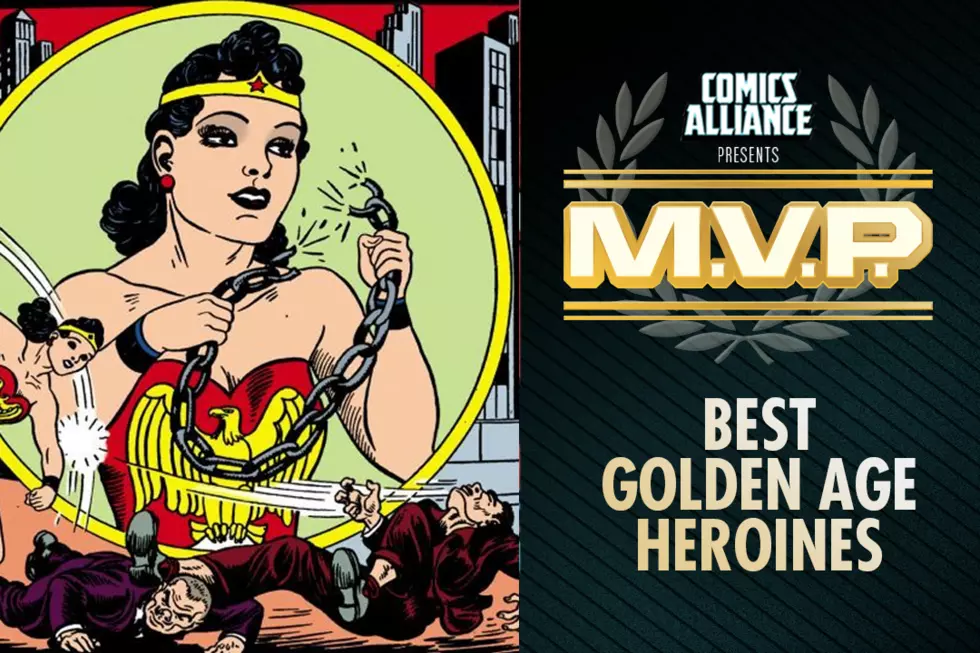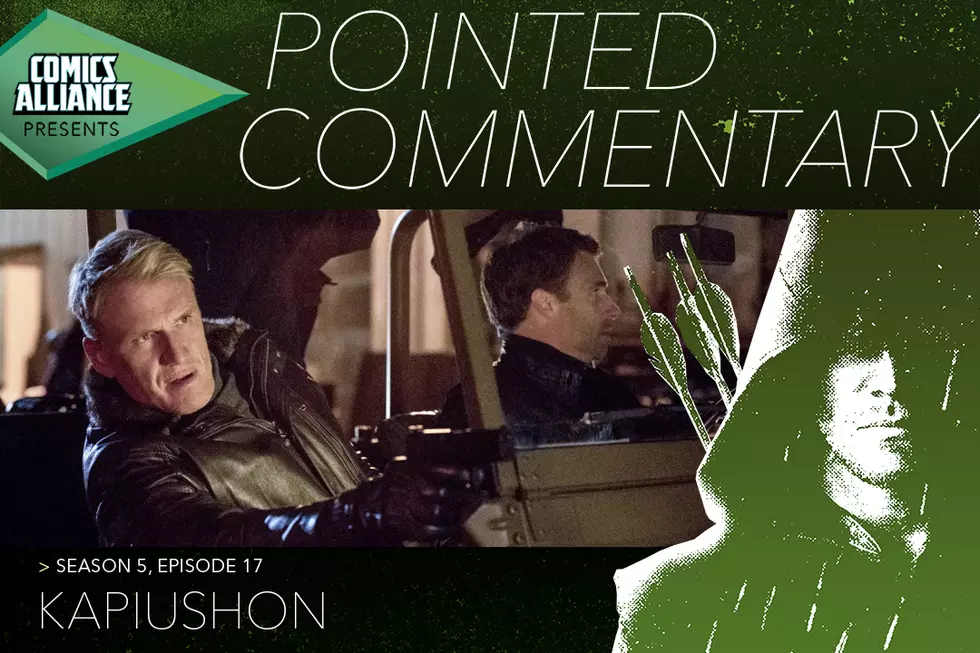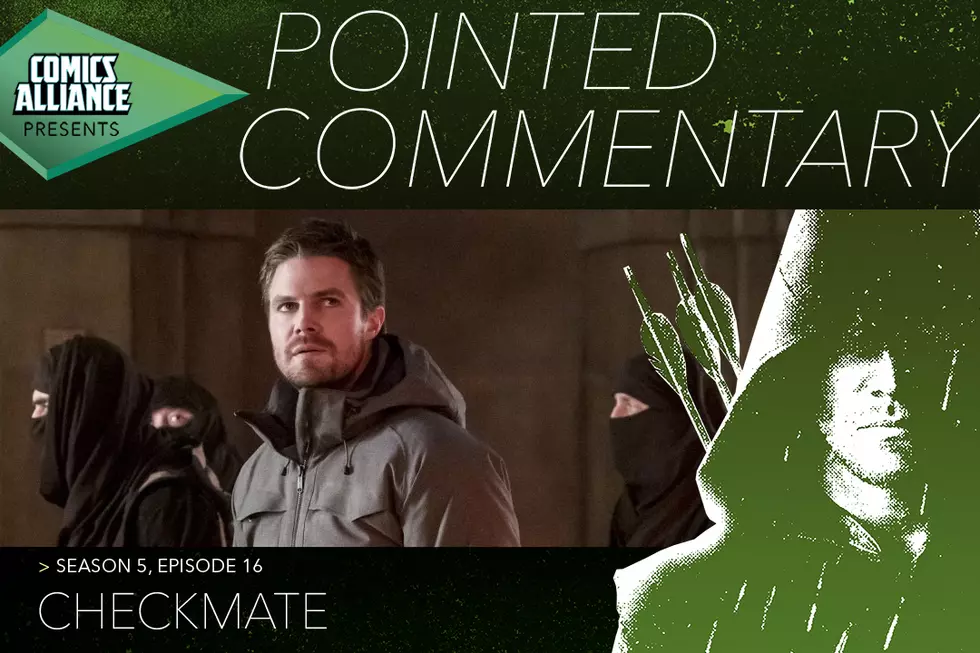
‘Birds of Prey’ TV Rewatch Post Script: The Verdict
This summer our Bird Watching team of Meredith Tomeo and Caleb Mozzocco endeavored to watch, re-watch, and dissect every episode of the half-forgotten, critically-ignored 2002 live-action Birds of Prey TV show in order to determine if it really deserved its fate, or if it was perhaps simply a show ahead of its time.
In this final installment of the series, they render their verdict on the show, and try to answer some of the questions they had before they first hit play on the DVD collection of the series.
Are Shows That Last Only One Season Really A Failure?
Caleb: When we decided to start this project, I was operating under the assumption that Birds of Prey was necessarily a failure because it lasted only a single season, while Smallville, which launched the previous year, aired for ten. I was naturally but perhaps unfairly comparing it to the show it had the most in common with --- that is, the other one based on one of DC Comics' two biggest franchises and developed for the WB audience --- and, more broadly, superhero shows in general. In which case, BOP's one-season lifespan put it in the same category as 2011's The Cape, rather than 10-season Smallville... or even four-season Heroes.
Well, that and the fact that it didn't have the dedicated, can't-let-it-go fanbase of a show like Firefly.
More recently, I realized life-span and the rabidness of a fan base aren't the only two measures of a TV show's quality. In comparing Birds not just to other superhero TV shows, or sci-fi action shows of the time, but to television in general, the fact that we didn't get a season two hardly means it's a failure, right?
Meredith: You’re exactly right. Networks have a history of cancelling critically-acclaimed yet low-rated shows. You mentioned Firefly, the go-to example for a "one season wonder," but there are a lot of other shows that fall under this umbrella as well. My personal favorite being Bryan Fuller’s Wonderfalls, but there’s also My So Called Life, Freaks and Geeks, and Clone High, to name a few.
Now, the "live fast, die young, leave a beautiful corpse" method of making television isn’t always what you want, but when creators are faced with a quick cancellation, it can help focus a show’s storytelling. Oftentimes, if given enough heads-up, these shows get satisfying endings and it can feel like you’re watching a miniseries of sorts.
However, that’s not what happened here with Birds of Prey, which appears like it was made with no thought whatsoever.
Was It Before Its Time, Or Did Something Else Go Wrong?
Caleb: To address the question that we began this project asking ourselves; was Birds of Prey simply before its time, do you think, or was it a poorly-made show that failed to find an audience?
Meredith: Well, it’s not strictly before its time. If they made the same show today with zero changes, it would still not be very good. However, I think a lot of the successes we’re seeing today with Greg Berlanti and the Arrowverse can be attributed to the benefit of being able to learn from the tepid response Birds of Prey garnered.
Caleb: Having now watched it, I think it was probably very much of its time, as it had an approach to the source material that was at least somewhat similar to Smallville's --- that is, it was Batman show without Batman, not entirely unlike the way in which Smallville was a Superman show set before Superman was Superman --- and had at least vague similarities to Buffy, Charmed or Dark Angel. It certainly seems cut from that same "sci-fi genre show for young people" cloth.
As you said, I think the only thing that was before its time about it was that they attempted it so early. A show about Oracle, Huntress and Black Canary fighting crime in a post-Batman Gotham City, if made today, and having learned from what has worked and what hasn't in the last 15 years or so worth of superhero genre TV would kick ass... but also be a very, very different show.
So What Was So Bad About Birds Of Prey?
1) Peculiar Premise
Caleb: As we talked about during the somewhat bewildering early episodes, the show seemed be built on weird, mismatched corner tones, taking bits and pieces from various areas of DC Comics and mixing them with original ideas that resulted in a rather ad hoc feel.
There was the then-current version of Barbara Gordon (Dina Meyer), working as Oracle from her clocktower base. She was teamed with the 1970s, Earth-2 conception of Huntress (Ashley Scott). And a teenage psychic Dinah Lance (Rachel Skarsten), who wasn't Black Canary, but was Black Canary's daughter. And it was set in the future, designated by the "New Gotham" appellation for their city, and the fact that Batman and Catwoman had a grown-up, twenty-something daughter. And Alfred (Ian Abercrombie) was there, for some reason. And, finally, in terms of world-building, the show had an unusual conception of super-powers, which basically amounted to anyone who has them being like the mutants of the world of X-Men, only they used the word "metahuman."
That's not to say it couldn't work, but there were a lot of narrative tensions baked-into the very premise and setting of the story, and as it played out it really seemed like two or three different shows got stitched together early in the development process into a kind of Frankestein's monster of a Birds of Prey adaptation.
Meredith: I absolutely would have loved to have been a fly on the wall during the pitch meetings for this show. Some of the choices they made are so bewildering --- for me the most confusing is having made Dinah a teenage psychic --- and they never really came together in any satisfying way to actually justify making those changes. Why is Dinah Lance a teenage psychic and not Black Canary? Was there going to be some long-game arc where she eventually took over her mother’s mantle? It’s a mystery that will never be solved and frankly, I think will haunt me long after we finish writing this.
The insistence on hanging Birds of Prey on the disappearance of Batman says to me they weren’t completely confident in the shows ability to exist without being able to fall back on the well-known male characters. I shouldn’t be surprised; that lack of faith in female characters leading comic book properties persists today. Please do not talk to me about how all the marketing for Supergirl’s second season is all about Superman’s arrival.
2) Poor Writing
Meredth: I found the overall writing and plotting of the series to be not very good. This is where I would’ve been willing to do a little give-and-take with the show. If the conception of the show required some adjustments to tell compelling stories, I understand that. Making Dinah a teenager almost made sense, especially during the Lady Shiva episode when they explored Dinah having to deal with her metahuman powers while also trying to have a normal life. But that’s sort of where Dinah’s story began and ended.
Looking back, I realize that none of the characters had any type of story arc. Barbara, Helena and Dinah didn't grow or change in any significant way, which makes the changes they made all the more bizarre. There didn’t seem to be any rhyme or reason for the patchwork universe they created.
Caleb: Yes, while the scripts weren't always exactly razor sharp or anything, I think the plotting was much weaker than the dialogue side of things. I think you can kind of guess at the arcs the producers and writers were going for --- Dinah growing into a full-fledged superhero, Helena working out her anger, the two romantic relationships --- but they would basically forget them for entire strings of episodes.
3) Poor Production Values
Meredith: I hate to fault the show for its style, because I do think it was a conscious choice, but I really did not like the cheap-looking city sets. It made the entire show feel incredibly claustrophobic and cut off from everything else. I swear, every episode opened in the same poorly lit alley and ended at the clocktower. There was no life in New Gotham, and every scene reminded me how fake everything was.
Caleb: While I agree the goofy-looking computer-generated swooshing cityscapes they show during scene changes and CGI establishing shots were likely a style choice that just aged really poorly, I have to assume some of the lack of life, that claustrophobic feel of the show was simply a matter of either a too-small budget or cost-saving corner-cutting.
Not only were the sets limited, but everything seemed like it was shot on an old-timey sound stage, even outdoor scenes. And they really seemed to skimp on extras whenever they could, so that the New Gotham police force seemed to consist almost entirely of Shemar Moore's Detective Jesse Reese and, depending on the episode, maybe his partner.
Perhaps we're just spoiled by the high-quality of genre television these days, but so much of this show looked more like a community theater production than a "real" TV show.
4.) Poor Use of the Source Material
Caleb: At the outset, I was surprised and impressed that we actually saw Batman, The Joker and Catwoman on screen at all, even if they were relegated to flashbacks and a line or two of dialogue (on the part of The Joker). We learned that Catwoman was killed, The Joker in jail, and Batman in a self-imposed exile... and then there was never really any resolution to questions that sort of hung over these things.
Why had The Joker never escaped, and why had Mia Sara's Harley Quinn never talked of rescuing him, despite dropping his name a few times? Where exactly was Batman, and what was he doing, and why didn't Barbara seem interested in looking for him? The characters often talked about him like he was dead, which we know he wasn't.
The show had a somewhat annoying habit of name-dropping characters --- Dick, Jason, Tim, Commissioner Gordon --- without ever alluding to whatever happened to them, and why the Birds were so completely estranged to them all.
Given that the show really came to life when Black Canary, Lady Shiva, Harley Quinn and even, to a lesser extent, Clayface would appear, it seems like the show would have benefited from such ties to Batman comics. Or, at the very least, it could not mention things like Barbara Gordon's police commissioner father in passing, which only serves to make one wonder where he is and what happened to him.
Meredith: The generic, no-named metahuman of the week structure was one of the greatest failings of the show and also the biggest adjustment we see in "modern" comics’ adaptation. My suspicion is that those making the show were hesitant to bog down Birds of Prey with a bunch of one-off comic book characters because they were afraid of alienating their non-comic book reading audience. However, showrunners have learned this just isn’t going to happen. In the first season of The Flash, we saw Plastique, Weather Wizard, Gorilla Grodd, Clock King and Bug-Eyed Bandit (to name a few).
As someone who doesn’t have an encyclopedic knowledge of DC comics, I don’t always immediately recognize these characters, but it makes no difference to me whether it’s "Everyman" or "The Crawler," it takes the exact same effort to watch the characters be introduced and to learn their backstories. It’s something that Smallville was given the time to learn. When the show started, they used a very similar meteor freak of the week structure, but by the end, they had assembled the entire Justice League.
Caleb: As someone who does have an encyclopedic knowledge of DC comics, I will admit that I sometimes find the way characters appear in modern superhero shows distracting. Supergirl, for example, has been filled with "name" characters from outside her comics milieu, including Justice League characters like Max Lord and Martian Manhunter, in rather important supporting roles.
That said, avoiding the rich source material of Batman's comics was a definitive negative here, as I did spend an awful lot of mental energy trying to figure out if these no-name characters were meant to allude to an extant character I couldn't remember or not.
And, of course, a "name" character is a draw. I was looking forward to the episodes called "Shiva" and "Feat of Clay" as soon as I saw those titles. I don't watch The Flash regularly, but when I hear there's a Gorilla Grodd episode or the Bug-Eyed Bandit is on, I'm definitely going to want to check those out just to see what they do with those characters.
But hey, let's abide by the "If you don't have something nice to say..." school of thought here, and not end on a down note. After all, for all its weaknesses, Birds Of Prey did have some considerable virtues.
What Were The Show's Redeeming Qualities?
1) The Cast
Caleb: One thing we can agree on, the show had a pretty great cast, especially among its principals.
Meredith: Dina Meyer, I hope every day someone tells you what an incredible Barbara Gordon you were. You were everything an older Babs should be. You captured both her warmth as a mentor for younger heroes and also the darkness behind her wealth of knowledge as someone who has faced down the darkest parts of humanity. For the rest of my days I will sing your praises so that your performance isn’t lost behind the black cloud of the show’s reputation.
"Meredith, what do you want for dinner?" "I don’t know, but have I told you how great Dina Meyer is on Birds of Prey?" "Meredith, how was your day?" "Fine, oh, and that reminds me, remember what an awesome Barbara Gordon that Dina Meyer was?"
Caleb: Agreed. Easily the best part of the show, Meyer was perfectly cast and performed perfectly. There's a very good chance she will be the only woman to ever play a live-action version of Oracle, so it's good thing she played her so well.
As for Ashley Scott, well, she was pretty. Scott had a pretty complicated role, really, and the dialogue was always telling us how angry, violent, suspicious and vengeance-obsessed she was. But she was also a little overly-obsessed with fashion and looking good (which meant no real costume for The Huntress, and sexy but generally crazy-looking outfits when she was Helena Kyle).
She also had to spend a lot of time flirting with Reese, and light-heartedly needling Barbara and Dinah. It can be difficult to tell what was the writing and the directing, and what was Scott's difficulty with integrating all this stuff into a single, believable persona.
I hate to be a guy about it, but, well, after watching 13 episodes of Ashley Scott's performance, my main take away is simply that Ashley Scott was pretty.
Meredith: Unfortunately, I think a mix of very weak writing for the character plus her so-so delivery combined for a lackluster lead performance. She wasn’t capable of leading this series, and it desperately needed someone who could. The show also seemed confused about her emotional arc. Was she trying to get vengeance for her mother's death? Does she care that her therapist was the former lover of the man who orchestrated her mother’s murder? I have no idea! The show decided that the big showdown of the finale was going to be between Babs and Harley instead.
Caleb: Like Scott, Rachel Skarsten's role was complicated, and in almost every episode they seemed to want to do something different with her. I think she provided some much-needed comic relief, and was at her best when she was acting a little silly, particularly during episode eight when we got the whole using-her-psychic-powers-to-get-a-boy to like her storyline. She also made us laugh a lot by accident, as she was excellent at making goofy faces and being a petulant teen, occasionally shrieking about how calm and in control of her emotions she was.
It's easy to imagine a better show in which Dina Meyer's Oracle trains with Skarsten playing, I don't know, Stephanie Brown taking the mantle of Batgirl or something like that. I think we've both agreed we'd like to see the grown-up Skarsten play Black Canary... although DC's current TV universe is pretty much lousy with Canaries at this point, huh?
Meredith: Yeah, so what’s wrong with adding one more to the mix? I’m actually really curious what Skarsten would do with the role a decade-plus later. She did a pretty good job shifting between barely concealed rage and ridiculous reaction shots. But like Helena, I think she was shorted by the material she was given. I wish they would’ve done more with the bickering, sibling-like relationship Helena and Dinah were developing. It was one of the stronger parts of the show and was something Scott and Skarsten both sold convincingly.
Caleb: Ian Abercrombie was definitely one of the MVPs of the cast. As with Sara's Harley, any episode that Abercrombie's Alfred Pennyworth didn't appear in almost automatically felt deficient. We've seen a lot of different styles of Alfred over the years, in the movies, cartoons, comics and TV shows, and there has been a definite trend towards younger, bad-ass Alfreds.
Abercrombie's Alfred was definitely in the tradition of the older, white-haired Michael Gough of the first cycle of live-action films --- and, I suppose, that of Alan Napier from the original TV show. Abercrombie was great at bringing biting sarcasm, and generally selling the character's ability to be both supportive and deflating of superheroes at the same time (with one exception, in episode 12, where he seemed to move from sassy to straight up bitchy).
And speaking of Sara's Harley, I think she kicked-ass as the first live-action Harley Quinn. Harley's a complicated character, made more complicated by her perplexing popularity, but in general she's been portrayed as something of a dim-witted Joker groupie or, more recently, as a psychotic sex object.
Jimmy Palmiotti and Amanda Conner have been trying to de-couple her from The Joker and give her some depth in the pages of their Harley Quinn comics, but for 2002 I thought this was a pretty bold take. Rather than a psychiatrist-turned-criminally insane super-villain, she was a secretly criminally insane super-villain and still-practicing psychiatrist. She was also the show's main villain, and something of an aspiring crime-lord, although she would disappear too often.
Sara did a fairly great job of playing the character as sexy and sensual (while wearing pants, unlike Margot Robbie's Harley), competent, evil and occasionally bonkers. Oh, and pretty damn bad-ass in her final episode fights.
I might be the only person on Earth to think this, but this might be my favorite Harley Quinn.
2.) Oracle
Caleb: As much as I love Barbara Gordon, librarian and Batman fan turned Batgirl over the objections of Batman and Robin, I love her as Oracle so much more.
There are certainly some meta reasons for that, including the way John Ostrander and Kim Yale rescued her from the events of The Killing Joke, and the Bat-office gradually made her the epicenter of the Batman universe, to the point that midway through Grant Morrison's JLA run, she was the intelligence broker and a sort of general for all of the superheroes in the DC Universe.
That, and she was one of the relatively few super-heroes to fight crime from a wheelchair, and unlike others, she lacked powers (I'm looking at you, Charles Xavier), and was young, strong and sexy, and could kick ass (I'm looking at you, Niles Caulder).
Meredith: Speaking of ass-kicking, the fight choreography was one of the stronger parts of the show as well, especially in the finale. It's worth noting that they allowed Babs to be a part of the action as Oracle. She wasn't limited to Clocktower, she helped Helena and Dinah fight while still being in a wheelchair. I really loved watching her beat down henchmen with her batons. They could've easily given her bionic legs and called it a day --- they did it with Michael Weatherly in Dark Angel. But instead they embraced Oracle and everything about her.
Caleb: And there are also just fan-ish reasons. I like that she took what would have been perceived as a handicap and reinvented herself to become an even more effective hero than she ever could have been jumping around on rooftops throwing bat-shaped projectiles at supervillains.
And Birds of Prey, for all its faults, is pretty much the only mass-media adaptation of this version of the character (she plays a supporting role in the Batman video games Arkham and Arkham City), as any time Barbara Gordon appears in a cartoon series, it's as Batgirl and not Oracle. In fact, whenever Batgirl appears in a Batman cartoon, it's Babs, not Cassandra Cain or Stephanie Brown. Now that Babs has regained the use of her legs in the rebooted DC Universe, it's even more unlikely we'll see another Oracle in a TV show or movie.
So, if nothing else, Birds of Prey did a good job of giving a great character a wider audience than the comic books could provide, at least for a while
Meredith: Man, why hasn’t Cassandra Cain appeared on Arrow? Her backstory fits nicely into the tone of that show.
The one final thought I have about this show is its legacy, or rather, lack thereof. The DC universe does a lot of repeat casting as a way of showing off its long history. John Wesley Shipp, the 90s Flash, plays the current Flash’s father. Former Supergirls Helen Slater and Laura Vandervoort both appear opposite Melissa Benoist’s Kara Danvers in Supergirl. There’s a longstanding tradition of the women cast as Lois Lane eventually taking over the role of Ella Lane. (Noel Neill played Ella to Margot Kidder’s Lois in the 1978 Superman, Phyllis Coates played Ella to Teri Hatcher’s Lois in Lois & Clark: The New Adventures of Superman, and Hatcher stepped up to Erica Durance’s Lois in Smallville).
My real question is: Why has DC completely forsaken Birds of Prey? The show really isn’t that bad, it’s certainly no worse than some of those middle seasons of Smallville, so why haven’t we seen Ashley Scott or Rachel Skarsten make appearances in the Arrowverse?
Caleb: So, final verdict?
Meredith: Barbara Gordon fans will definitely want to seek it out, but there's just not enough there for me to make a recommendation for a casual viewer.
Caleb: Agreed. I had fun watching it, and occasionally even liked it, but I wouldn't go so far as to say it is a good show. Which isn't to say that Greg Berlanti or whoever shouldn't get on making a Birds Of Prey reboot, because someone totally should.
More From ComicsAlliance

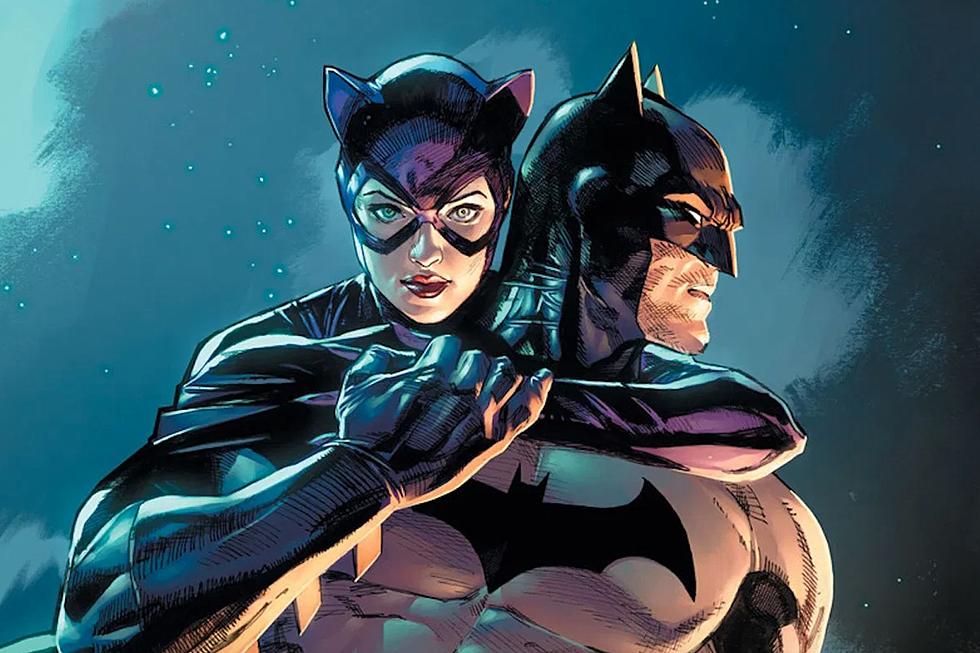
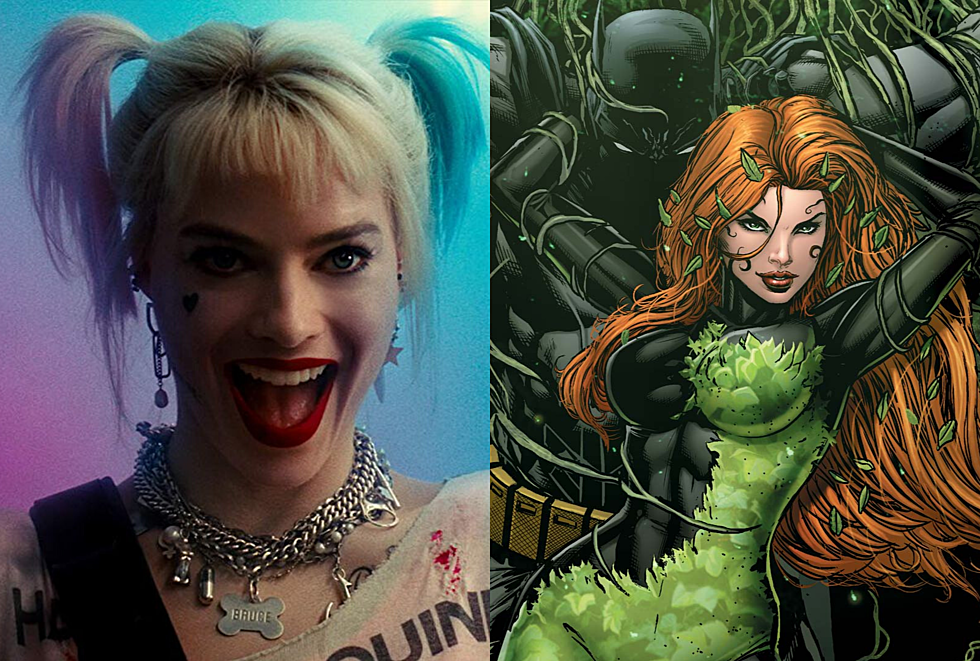


![How Conner And Palmiotti Reinvigorated Harley And Reimagined ‘The Jetsons’ [Interview]](http://townsquare.media/site/622/files/2017/03/Harley-Featured.png?w=980&q=75)
